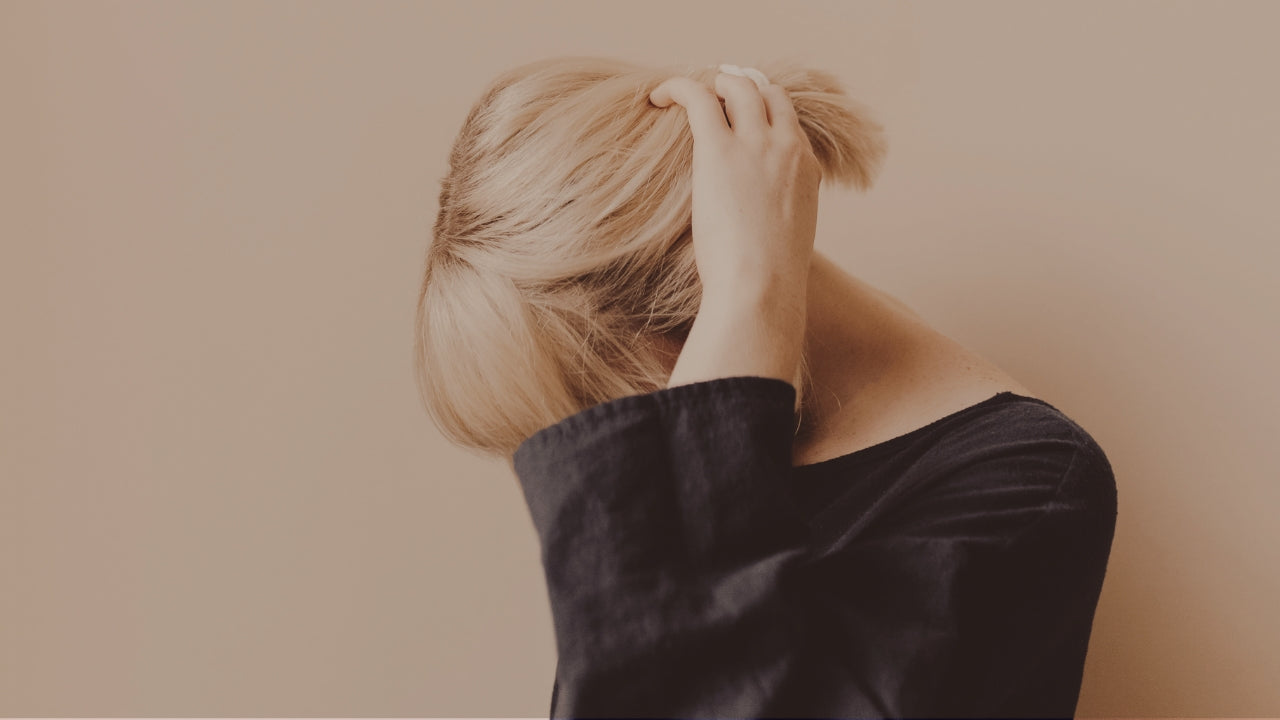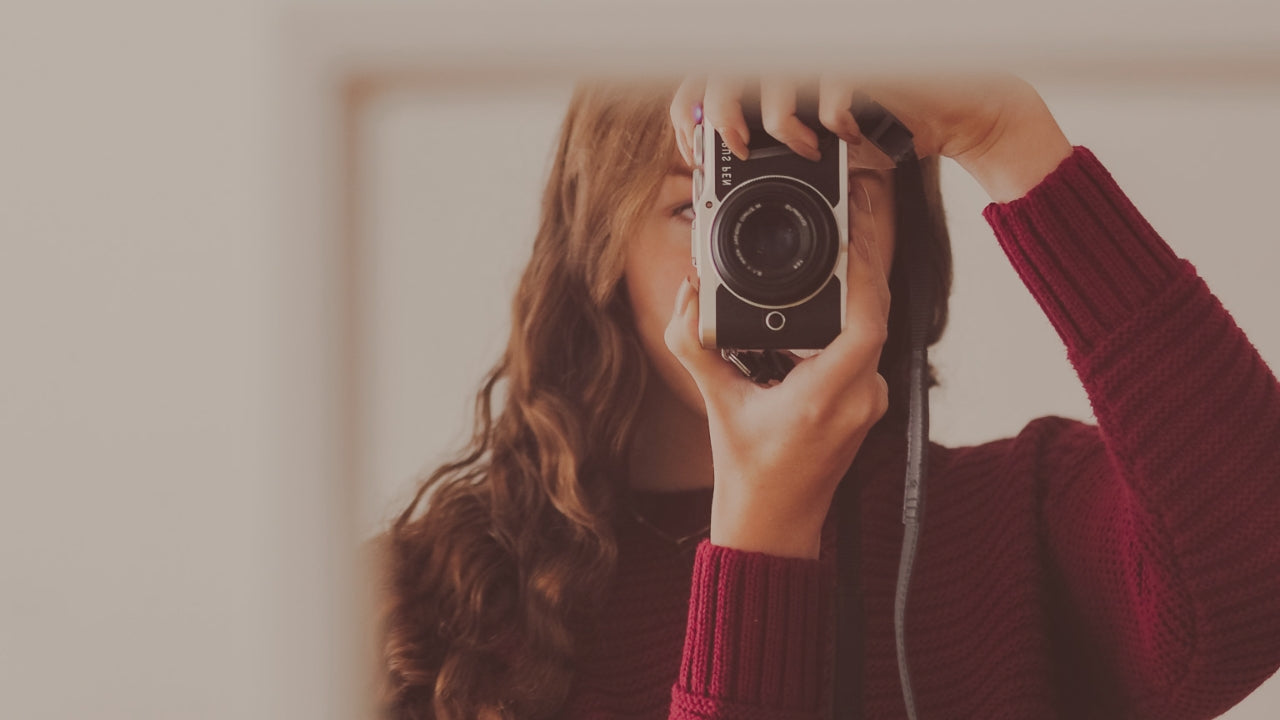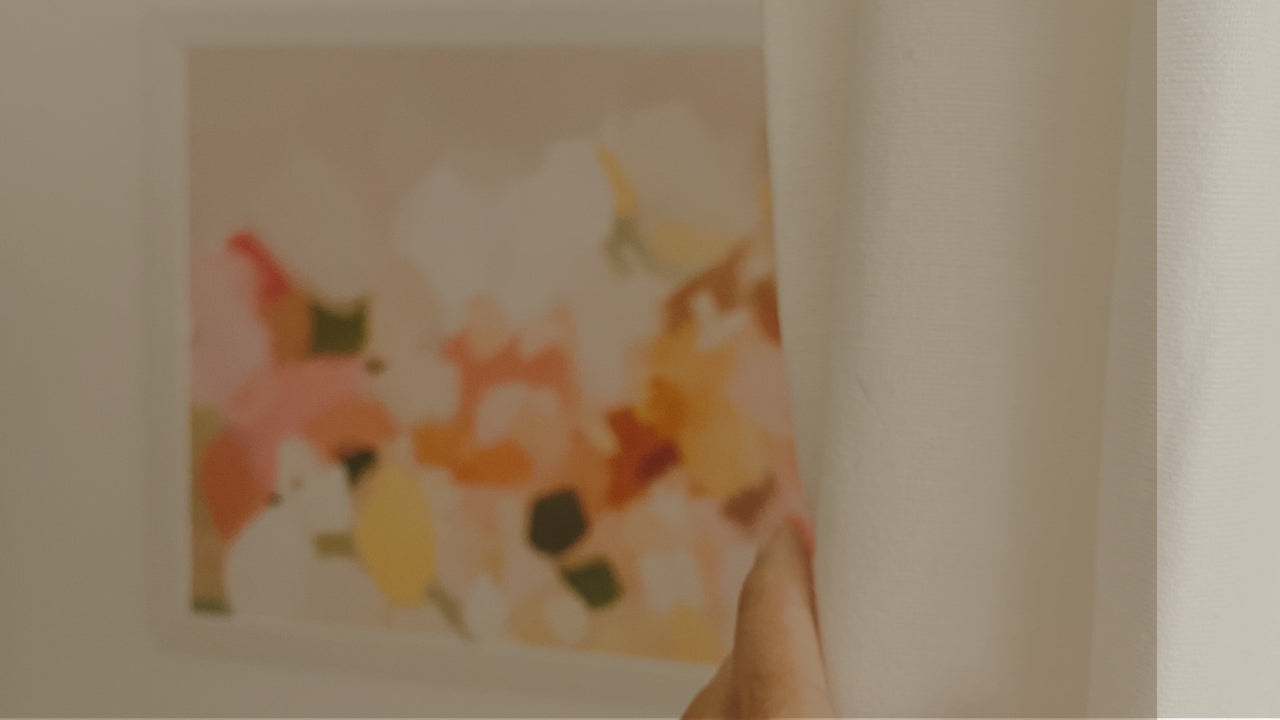
Why licensing is a perfect business model for highly sensitive introverted artists
As highly sensitive introverted artists our nervous systems need us to retreat from the world when we’re overstimulated. In this blog post, I’ll share why licensing art is a perfect business model for sensitive artists.
I’ve noticed that the traditional method for selling art online, or in person, can be taxing on our nervous systems. It requires a lot of outward-facing activities, like constantly talking about our art to a bunch of strangers on and off social media, or doing live events like fairs and shows. While this is something we can do in small bursts, it can be hard to stay consistent. Our nervous systems have a lower tolerance for interaction, and it can only be stretched so far before we burn out.
We would love nothing more than to just crawl into a cozy cave (or find a secluded cabin in the forest) and leisurely make our art undisturbed.
However, even though we know that if we’re trying to make money from our art, we can’t just hide forever and hope someone will magically discover us and then proceed to buy everything we’ve ever made (oh that would be the dream, wouldn’t it?!).
Yet our deeply rooted need to hide and retreat from the world is an ever-present feeling and at times it can make it challenging to do the things we need to do to make money from our art.
So while we can’t completely hide AND sell our art at the same time, we can fortunately do it to an extent with licensing.
Licensing, or the act of giving another person or company the right to use your artwork for commercial purposes, is a low-key and gentle way for highly sensitive introverted artists to make money from their art.
Here are 5 major reasons why licensing works with our natural characteristics instead of against them.
We thrive on one-to-one connections
One of the best parts of licensing is that it works with our preference of interacting with a few people. In my experience, no matter how large the company is, only a few are selected to work directly with the artist. It is then their job to rely the info back to their team. This intimate setting works to our advantage because it doesn’t feel as overwhelming to our systems and gives us a chance to shine.
There is also the opportunity to create rapport with these individuals, who can then keep us in mind for future projects, thus minimizing the need to constantly cold pitch. It also means that if we ever have any new work, we can reach out with confidence. Companies who license artwork are always looking for new work to offer to their clients and customers.
Additionally, there are types of licensing, like working with print galleries, which allow us to forge long term relationships and generate passive income on a consistent basis.
It can remove us from the marketing
Marketing is where we tend to struggle the most. We can make art until the end of time, but asking us to consistently sell to a crowd of strangers day in and day out makes us want to run back to our hobbit holes.
Though there are time when we share our work with ease, it’s not a skill that we can regularly tap into. For the most part we tend to freeze, feel like we don’t know what to say, and forget how to person all together. But when we license our art we can forgo the need to market. Unless it is explicitly written in our contract that we must also market the licensed product, it is the “licensee” (i.e.the company) who brunts the responsibility of driving sales.
This leaves us to do what we do best, make our beautiful art.
Making money from our art isn’t dependent on our productivity
At times, our energy can have greater ebbs than flows. We might make art in a whirlwind of inspiration, but when we use it up it can take us time to recover. We need time to rest and gather.
Licensing deals can give us the respite we need from creating. If we’re new to licensing then those moments of respite might be shortlived. However, as we progress in our licensing careers we can elongate those periods of rest when one or more licensing contracts bring in consistent passive income.
A stark contrast to selling a collection one-of-a-kind pieces which requires us to replenish sold art with new. Licensing, on the other hand, doesn’t require us to pump out new work at the same rate.
It gives us breathing space to create, become inspired, and execute our ideas at a more leisurely pace, all without affecting our income.
We don’t have to make the final product
Regardless of how much is sold, we are not the ones making, packaging, and shipping the finished product. This helps conserve our precious finite energy.
It puts us back in the artist’s seat
As noted in the previous points, when we license our art we reduce the amount of “business related” activities and are able to dedicate more time to creating the art we love. When we’re able to spend more time on activities that feel good to us, we open ourselves up to greater forms of inspiration and creativity.
Final thoughts
Licensing makes it possible for highly sensitive introverted artists, like us, to not only make passive income from our art but also share it with the world without compromising our natural ways of being.
Want to dive deeper and explore different types of licensing? Check out my audio guide Passive Revenue Streams for Artists.




Leave a comment
This site is protected by hCaptcha and the hCaptcha Privacy Policy and Terms of Service apply.